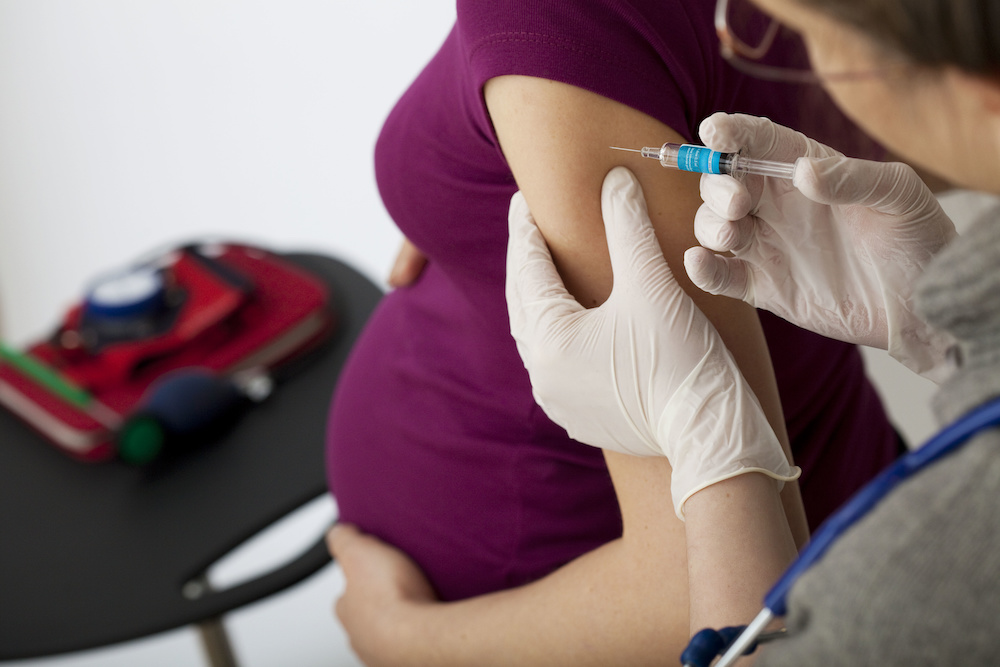What vaccines and vaccine boosters are safe and recommended during pregnancy?
Expert: Sarah Little, MD, Department of Obstetrics and Gynecology, Brigham and Women’s Hospital
Before getting pregnant, you should check to make sure you are up to date on your vaccinations. The MMR (measles, mumps, and rubella) vaccine is especially important, since rubella can cause miscarriage and birth defects.
During pregnancy, it’s a good idea to get the TDaP vaccine because some of your bodies protective antibodies will be passed along to your baby, giving them temporary immunity. TDaP protects against diphtheria, tetanus, and pertussis (whooping cough). It’s also safe (and recommended) that pregnant women get the flu vaccine if they are pregnant during flu season. Pregnant women are more likely to get seriously ill from the flu. If you catch the flu while pregnant, you’re also at an increased risk for premature labor.
Vaccinating both yourself and your baby is very important. While only 0.7% of children aged 19-35 months were unvaccinated in 2013 according to the Centers for Disease Control, the small number of people who forgo vaccination put the rest of the population at risk.
Recommended and safe vaccines during pregnancy
The vaccines your baby will receive in the first few years of life are important for warding off serious diseases, and vaccinating your child will help reduce the spread of illnesses among vulnerable populations. Here are the diseases your baby should be vaccinated against in their first few weeks, months, and years of life:
TDaP: (Tetanus, Diphtheria and Pertussis)
- Diphtheria: Diphtheria is a contagious bacterial infection that killed 15,000 people before a vaccine was developed.
- Tetanus: Tetanus is a serious infection of cuts and wounds that kills 10% of those who contract it.
- Pertussis: Also known as whooping cough, pertussis can be deadly in infants.
Other recommended vaccines:
- Hib: Short for Haemophilus influenza type b, Hib is a serious illness. The vaccine is important for preventing both the disease itself as well as pneumonia and meningitis, both of which may develop in children who contract Hib.
- Hepatitis B: Liver damage and cancer may result from infection with Hepatitis B, so getting vaccinated is very important.
- Polio: Before the development of the polio virus, polio caused paralysis and death in both children and adults. Since this paralysis can be permanent, vaccination is essential.
- Pneumococcal disease: This disease, which kills 1 in 15 infected children, is very serious and should be vaccinated against.
- Rotavirus: This contagious virus presents with severe vomiting and diarrhea, resulting in dehydration that can be fatal in babies and young children. The vaccine is important for protecting children against the virus.
Additional recommended childhood vaccines include varicella, influenza (annually), and measles, mumps, and rubella (MMR). The CDC found that vaccinations in children born between 1994 and 2013 will prevent or have prevented 732,000 deaths and saved $1.38 trillion. The cost to individuals and to society of not vaccinating are immense. There are many myths about vaccination, but the bottom line is that it’s more dangerous to skip vaccines than it is to get them.
